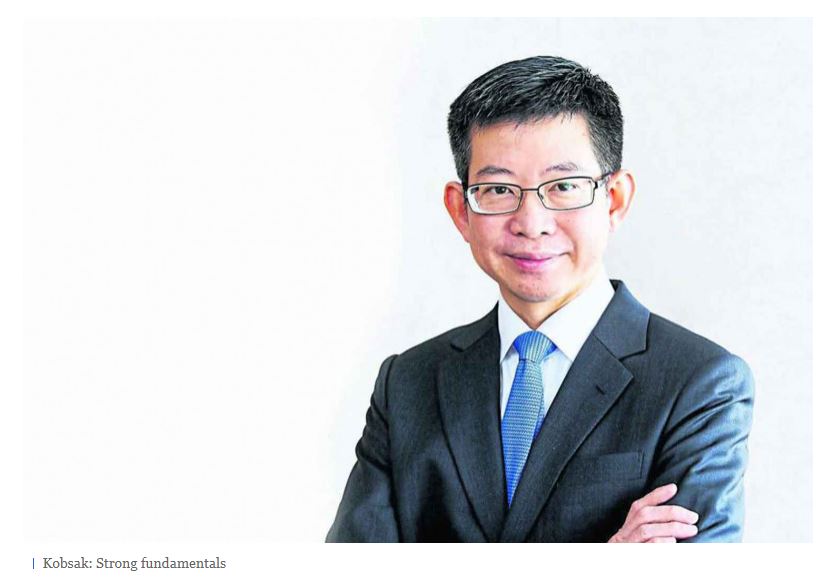Thailand: Economy set to expand despite global recession
Thailand is expected to eke out annual economic growth of about 3% over the next two years despite a looming global recession, says Bangkok Bank economist Kobsak Pootrakool.
Mr Kobsak, also chairman of the Federation of Thai Capital Market Organizations, said that Thailand’s economic fundamentals remained strong, boosted by a rapid recovery in tourism and foreign direct investments.
“The world economy is entering a recession because of runaway global inflation and rising interest rates in a number of countries, especially the [US] Federal Reserve, which is expected to carry on raising its policy rates to rein in US inflation,” said Mr Kobsak.
“The world’s economic difficulties are expected to become intensified and clearer from late this year to next year, as we have seen the start of layoffs by large companies in the US and Europe and increased requests for financial assistance packages from the International Monetary Fund by several emerging markets which are suffering from economic and financial hardships.”
According to Mr Kobsak, the global economic recession will to a certain extent affect Thailand, which is facing a political transition as the next general election is likely to be held early next year.
“Political changes may affect the continuity of the government’s key economic policies, but we still hope existing key economic supervisory units, such as the Finance Ministry and the Bank of Thailand, will help support and handle the economic policies in the right direction,” he said.
On the prospects for 2023, Mr Kobsak said Thailand’s export sector is unlikely to see a repeat of the strong growth seen in recent years because the country’s key trading partners such as the US, Europe and China are all confronting their own economic difficulties.
According to Mr Kobsak, Thailand’s key strengths are robust economic fundamentals and relatively high international reserves.
He noted that although the baht has weakened to up to 38 baht per US dollar, other countries’ currencies have similarly depreciated against the greenback. He added that the Bank of Thailand’s decision not to intervene in the baht’s movement or fight the strengthening dollar due to US interest rate hikes is seen as the right decision.
“The US dollar is expected to rise on a continuous basis because the Fed is expected to carry on raising its interest rates in an effort to ease its hefty inflation,” said Mr Kobsak. “It will be better and smarter to keep our reserves to be used during the critical period.”
According to Mr Kobsak, recoveries in the tourism and investment sectors are expected to play key roles in shoring up Thai economic growth during the global recession.
He said there are currently around 1.5 million international tourists coming to Thailand each month, with the numbers expected to reach over 10 million this year. In 2023, the number is likely to hit 20-25 million, he said.
Mr Kobsak also predicted that foreign investment would remain strong, as indicated by a recent move by Chinese electric car manufacturer BYD to build an electric vehicle production plant in Thailand.
“Large-scale foreign investments in Thailand are expected to continue over the next 2-3 years thanks to the government’s support measures, including the long-term residence visa scheme to lure wealthy foreigners and professionals to stay and work in Thailand,” he said.
Mr Kobsak said the government needed to prepare for the global recession by building up confidence in the private sector.
“The right information about Thailand’s economic strengths and opportunities need to be conveyed, while roadshows to create confidence in Thailand’s economic prospects need to be held to entice foreign investment, and key infrastructure developments such as expressways, motorways, high-speed trains, the Eastern Economic Corridor and the Southern Economic Corridor have to be implemented,” he said.
Source: https://www.bangkokpost.com/business/2406250/economy-set-to-expand-despite-global-recession


 English
English




